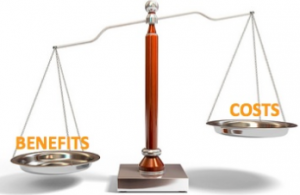by Julian Buchanan, Associate Professor Institute of Criminology, Victoria University of Wellington, Aotearoa New Zealand, 2nd. April 2015.
It is widely assumed that the so called ‘war on drugs’ (the war between drugs), has been a disastrous failure, and faced with mounting evidence and criticism, governments would eventually seek legislative and policy change.
The evidence presented is largely based upon an analysis of the inability of drug prohibition to reduce the supply and demand for banned substances, supplemented by a critique outlining the widespread harms caused by prohibition. However, with a different agenda and focus, it might be that this ‘evidence’ in terms of the failure to dent supply and demand, has over time (fifty years), become secondary to other government, business and organisational interests.
Seen in a different light, the Drug War has been a major success, providing considerable opportunities and benefits:
- legal drugs: alcohol; caffeine; tobacco; sugar and pharmaceuticals.
-
It provides the police with excellent powers to easily stop, search, arrest, interrogate and prosecute.
-
It successfully attracts significant additional funding for police, armed services, customs officials and security services.
-
It provides justification for military action and invasion of other countries.
-
It provides excellent opportunities for significant additional resources for the police/state through the seizure of assets.
-
It provides excellent business opportunities and raw material (people) for the ever burgeoning penal industrial complex.
-
It provides considerable opportunities for new technology development and sales, in the invasive and expanding drug testing industry.
-
It provides considerable opportunities for new technology development and sales, in the avoidance of drug detection industry.
-
It provides the drug rehabilitation business with an endless supply of illicit users, who must always abstain, and forever be in recovery.
-
It provides excellent opportunities for the state to easily target, monitor, control and punish the poor, indigenous people, Black and minority ethnic groups and people of colour.
-
It provides politicians with a societal scapegoat, and the chance to rally support and votes by getting ‘tough’ on a socially constructed enemy within: the ‘addict’ hooked and controlled by the ‘demon drugs’.
-
It provides the news media with easy, cheap dirty stories and pictures of the apparent horrors associated with illicit drug use.
-
It provides a much needed distraction from the serious problems caused by the more harmful, addictive and culturally embedded legal drugs – alcohol, tobacco, sugar and pharmaceuticals.
-
Internationally, it rallies otherwise disparate nations together by finding common ground to fight a shared war against a global enemy, ‘drugs’.
-
It provides the Banks with massive investments from money laundering.
-
It provides researchers and academics will a constant and reliable stream of funding sources for endless prevalence studies and evidence to uphold prohibition propaganda such as reefer madness, gateway theory, crack babies and krokodil.
-
It allows governments to detract attention away from the key structural drivers behind most chronic addiction (inequality, stigma, exclusion, poverty and blocked opportunities) and instead, misleadingly shift attention towards the supposed demonising and devastating power of the illicit drug.
-
It provides a lucrative illegal market that enables gangsters and drug cartels to make incredible untaxed profits.
-
It provides an attractive and unquestionable dogma for religious groups to ‘say no’ to drugs, avoiding the complexities of science, reason and rationale, and indeed the contradiction in respect of sugar, caffeine, tobacco and alcohol.
-
It provides excellent careers for drug enforcement officials and drug policy entrepreneurs and careerists, facilitating endless debates, inquiries, international travel, networking and conference events, particularly via the United Nations.
If these are key drivers that sustain prohibition and maintain the ‘war between drugs’ then appealing to the groups that benefit from prohibition by providing endless research reports and campaigns to highlight the limited impact prohibition has upon supply and demand, or the negative unintended outcomes from criminalisation, may have limited political impact or sway given the benefits experienced by these powerful groups and organisations.
by Julian Buchanan, Associate Professor Institute of Criminology, Victoria University of Wellington, Aotearoa New Zealand, (updated 24th August 2015).
Thanks to @mhound and @ChurchOfBong for helpful suggestions!
